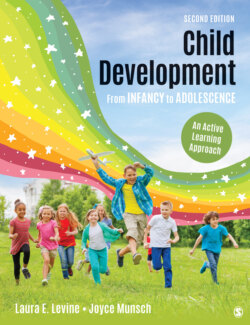Читать книгу Child Development From Infancy to Adolescence - Laura E. Levine - Страница 208
На сайте Литреса книга снята с продажи.
3.3 How do genetic disorders develop, and what role do genetic testing and counseling play in identifying, preventing, and treating these disorders?
ОглавлениеSingle-gene disorders, such as sickle-cell disease and Tay-Sachs disease, result when an individual inherits a pair of recessive genes that carry that disorder. A recessive gene can also appear in the phenotype if it is carried on the X chromosome of a male child and there is no partner for it on the smaller Y chromosome. Disorders such as cystic fibrosis can also result when mutations occur in a gene. Chromosome disorders such as Down syndrome occur when a child receives the wrong number of chromosomes or when there is a change in the structure of the chromosome caused by breakage. Multifactorial inheritance disorders, such as depression and alcoholism, result from the action of many genes that also interact with environmental influences. Genetic counseling helps parents assess the risk that their child might have for certain conditions. During pregnancy, genetic screening tests of the mother’s blood, amniocentesis, and chorionic villus sampling can assess genetic defects. Parents are also offered genetic screening for their newborn, and under certain circumstances older children may receive genetic testing. Important ethical considerations include the privacy of the reports and, when possible, informed consent of the child. Gene therapy is a promising new approach to treating genetic disorders, and some disorders can be treated with environmental interventions.
